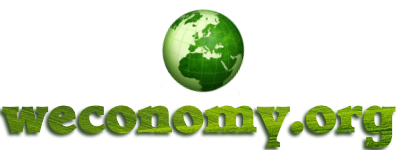| Biology | Behaviour | The model | Weconomy | Contact |

In this series I introduce the building blocks of a model of human interaction, trying to find the key factors and define the language with which to describe real world effects and interventions.
The model is evolved from the ground up by testing all building blocks and concepts in competitions.
The model demonstrates how social structures and advanced cooperation emerges from individuals initially behaving mostly self-interested, providing they have the capability to
recognize and join into mutually beneficial arrangements.
The model then evolves further as the arrangements enable the division of costs and benefits in accordance to the negotiating power of partaking individuals. We set out with an egal distribution of resources and results. Pure luck introduces small differences between individuals. Some have access to more resources, some achive better results. As cooperation progresses and the model evolves, small differences appear to set the path for bigger differences. These bigger differences give rise to individuals with a better position in their arrangements, giving them better results which further improves their position.
The next stage adds another layer of complexity to the model: the evolution and division of (State)functions. To bind groups together and provide stability, the model needs some overarching functions. Where the fruits of the division of labour are for the needs of the individual, functions provide for the needs of a system of cooperating groups. They primarily deal with conflict.
In the final stage of the model, one entity is bound to territory and provides what we can now call the State-functions to all inhabitants of the territory. The entity is not an individual but a group, but this group still needs to be coördinated. The model organizes the competition between several strategies for these individuals and several arrangements between the state faction and the groups in the state.
The model then evolves further as the arrangements enable the division of costs and benefits in accordance to the negotiating power of partaking individuals. We set out with an egal distribution of resources and results. Pure luck introduces small differences between individuals. Some have access to more resources, some achive better results. As cooperation progresses and the model evolves, small differences appear to set the path for bigger differences. These bigger differences give rise to individuals with a better position in their arrangements, giving them better results which further improves their position.
The next stage adds another layer of complexity to the model: the evolution and division of (State)functions. To bind groups together and provide stability, the model needs some overarching functions. Where the fruits of the division of labour are for the needs of the individual, functions provide for the needs of a system of cooperating groups. They primarily deal with conflict.
In the final stage of the model, one entity is bound to territory and provides what we can now call the State-functions to all inhabitants of the territory. The entity is not an individual but a group, but this group still needs to be coördinated. The model organizes the competition between several strategies for these individuals and several arrangements between the state faction and the groups in the state.
Hier dan de content, binnen div met id=blogspace (is dat nodig, er is ook al page container?).
Default laatste artikel.
Geen blogstructuur maar hoofdstukken.
individual relations - family - close by - strangers - of meteen implementeren in termen van afstand?
individuals and informal entities - friends - community or group of like minded(sharing a believe system) -
individuals and formal bodies - employers and other organizations, setting up a formal contract for mutual benefits - all the formalized entities of state To be considered as part of the system that defines, upholds and governs formal rules of interaction: the law. individual roles - a role is implemented as being part of an entity - an entity is a group of individuals, sharing costs and benefit of a certain task - an individual is a member or a coordinator of an entity
Default laatste artikel.
Geen blogstructuur maar hoofdstukken.
individual relations - family - close by - strangers - of meteen implementeren in termen van afstand?
individuals and informal entities - friends - community or group of like minded(sharing a believe system) -
individuals and formal bodies - employers and other organizations, setting up a formal contract for mutual benefits - all the formalized entities of state To be considered as part of the system that defines, upholds and governs formal rules of interaction: the law. individual roles - a role is implemented as being part of an entity - an entity is a group of individuals, sharing costs and benefit of a certain task - an individual is a member or a coordinator of an entity
© Lars Pothast 2023
This site does not use cookies at all, you will not be tracked.
This is the end!